Farm and farm tours are well-known phenomena. However, Obsthof Otte has come up with something special here: As a "fruit farm safari" Charlotte Otte, the future managing director of the farm, leads interested customers through the fruit farm to educate them about apple cultivation, healthy nutrition, storage, etc.. "Many were surprised about the great variety of species that can be found on our orchard. Exciting background information about the different apple varieties and production can be given during this look behind the scenes. This nice and Corona-safe activity was very popular this year," Otte informs us.
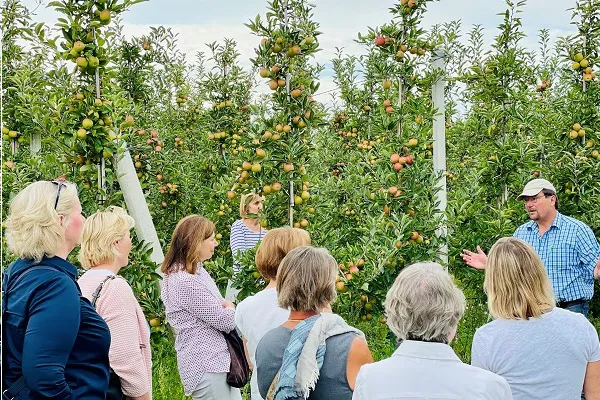
Good year despite reduced harvest
"In apple growing, we are dealing with what is called alternance. While we had a very good harvest last year, this year we already expected reduced apple quantities. The forecasted yield seems to confirm this. So far, however, we are quite satisfied." However, she says the percentage of apples affected by scab is higher this year; a consequence of the wet, extremely rainy summer.
At the same time, Otte is enjoying good demand. "We are succeeding in reaching our customers directly within the region and were able to communicate that, due to Mother Nature and the weather conditions, not every apple can be perfect. Nevertheless, we are pleased to have about 30 varieties with apples of the best quality on offer."
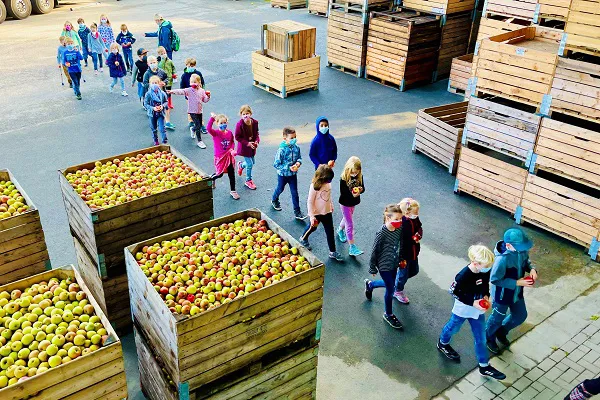
Popular varieties: Elstar, Boskoop, Wellant, Natyra
In addition to direct marketing through the farm store and market stall, the orchard also markets its apples through value-oriented, owner-operated full-line retailers, who value their products and distribute them in the region. According to Otte, the most popular varieties still include Elstar, as well as classics like Boskoop. Wellant is also very popular, and Natyra is a figurehead in the organic range. But the fruit farm also grows some older varieties, such as the Rote Berlepsch, Gravensteiner or the Lippe-Biesterfelder Renette.
"These are not particularly well known in the trade. However, it is also important to us to preserve older varieties and not only to grow varieties that are conspicuous by their yield mass. We want to ensure there is an attractive diversity of varieties and flavors. Our customers appreciate that." This would also result in higher costs, as some varieties are more susceptible to diseases, requiring more intensive care. The higher prices would be justified, and are accepted by a segment of the customers.
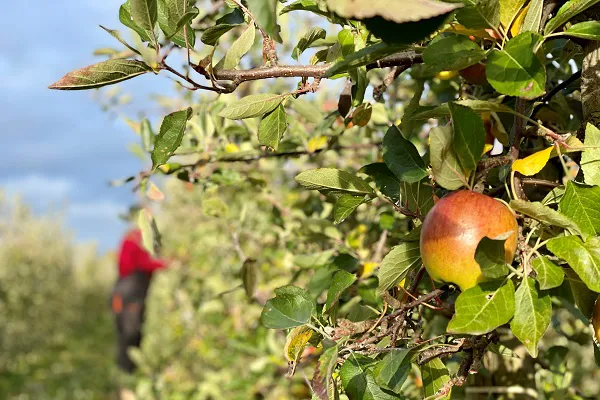
Scab, codling moth and labor costs influence prices
Although this year was not a top year, a decent result was nevertheless achieved. "The cultivation and harvesting measures still involve 70% manual labor, which will then be reflected in the labor costs. With costs now on the rise, it remains to be seen whether we can continue to operate as we have in the past. The demand for regional sustainably produced apples remains high, although customers, for all the appreciation we receive from them, will no longer be willing to pay the difference once a certain threshold is reached. We are already thinking about this. Costs have to be adjusted, to find out what makes sense economically." Furthermore, the aforementioned scab and codling moth caused some problems in organic farming.
Rising costs are also noticeable in cultivation, Otte says: "Everywhere, we are noticing that material prices are rising, and massively so. In terms of energy, we are quite well positioned, as we can feed our cold stores with our own photovoltaic system for the most part. Of course, we also want to grow and operate in an energy-efficient and sustainable way."
Material costs up 60-70 percent
As a regional supplier, t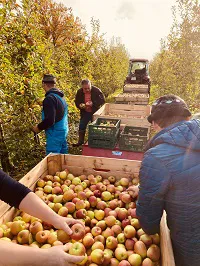 he orchard has built up a logistics system, which will become more costly, as will the materials needed to cover the strawberries or replant the apple orchard. "For some materials, prices are 60-70 percent higher than last year. When production costs go up like that, of course you have to expect price increases."
he orchard has built up a logistics system, which will become more costly, as will the materials needed to cover the strawberries or replant the apple orchard. "For some materials, prices are 60-70 percent higher than last year. When production costs go up like that, of course you have to expect price increases."
More ecologically and economically sustainable packaging
When it comes to packaging, Otte says many fruit growers are looking for new, more sustainable options. "We want to avoid plastic, but the carbon footprint of cardboard is not necessarily better, it's just suboptimal in a different way. We are desperately looking for new products that are not only environmentally sustainable, but also economically sustainable and meet practical needs. In that respect, we look forward to more innovation and new offerings in this area."
For more information: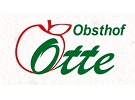 Charlotte Otte
Charlotte Otte
Obsthof Otte Vertrieb
Heidestr.42
32120 Hiddenhausen
Tel. +49 5223-83400
Fax: +49 5223-87401
Email: info@obsthof-otte.de
Internet: www.obsthof-otte.de
